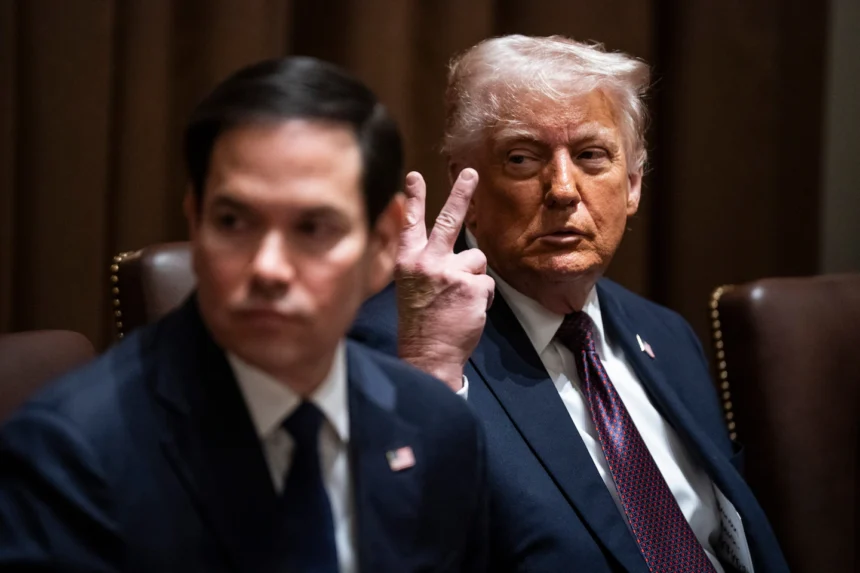The United States is weighing a significant expansion of its travel ban policy, with Nigeria named among 36 countries that could soon face visa restrictions or outright entry bans. This move, under consideration by President Donald Trump’s administration, would mark a major escalation of America’s hardline immigration stance.
According to an internal State Department memo obtained by The Washington Post, the proposed expansion targets 25 African countries—including key U.S. partners like Egypt, Djibouti, and Nigeria—alongside nations in the Caribbean, Central Asia, and the Pacific Islands.
Nigeria, Africa’s most populous country and one of the U.S.’s largest African trading partners, is expected to submit an action plan to the U.S. State Department by Wednesday in a bid to meet newly introduced security and information-sharing requirements. Countries that fail to comply within 60 days may be hit with stringent travel restrictions.
This latest development follows a series of executive actions taken by President Trump since beginning his second term in January. The administration has stepped up deportations and expanded travel bans in a bid to tighten immigration controls. In June, Trump signed an executive order barring entry to nationals of 12 countries, including Iran, Somalia, Yemen, Libya, and Myanmar.
The memo, reportedly signed by Secretary of State Marco Rubio, outlines a classification system that divides countries into red, orange, and yellow categories. Nations in the red group would face a full travel ban, the orange group would see sharply restricted visa access, while yellow-listed countries—including Nigeria—are being given 60 days to address U.S. concerns or risk being reclassified.
Also named in the proposed list are Angola, Ghana, Ethiopia, Cameroon, Tanzania, and Uganda, as well as small island nations like Tuvalu, Tonga, and Saint Lucia.
Though both the White House and the State Department have declined to comment on the leaked memo, the move has already sparked diplomatic unease in many of the affected nations. For Nigeria, a country with a large diaspora in the U.S., the implications could be far-reaching for families, businesses, and international cooperation.
Analysts say the proposed policy could strain U.S.-Africa relations at a time when geopolitical competition on the continent is intensifying.

